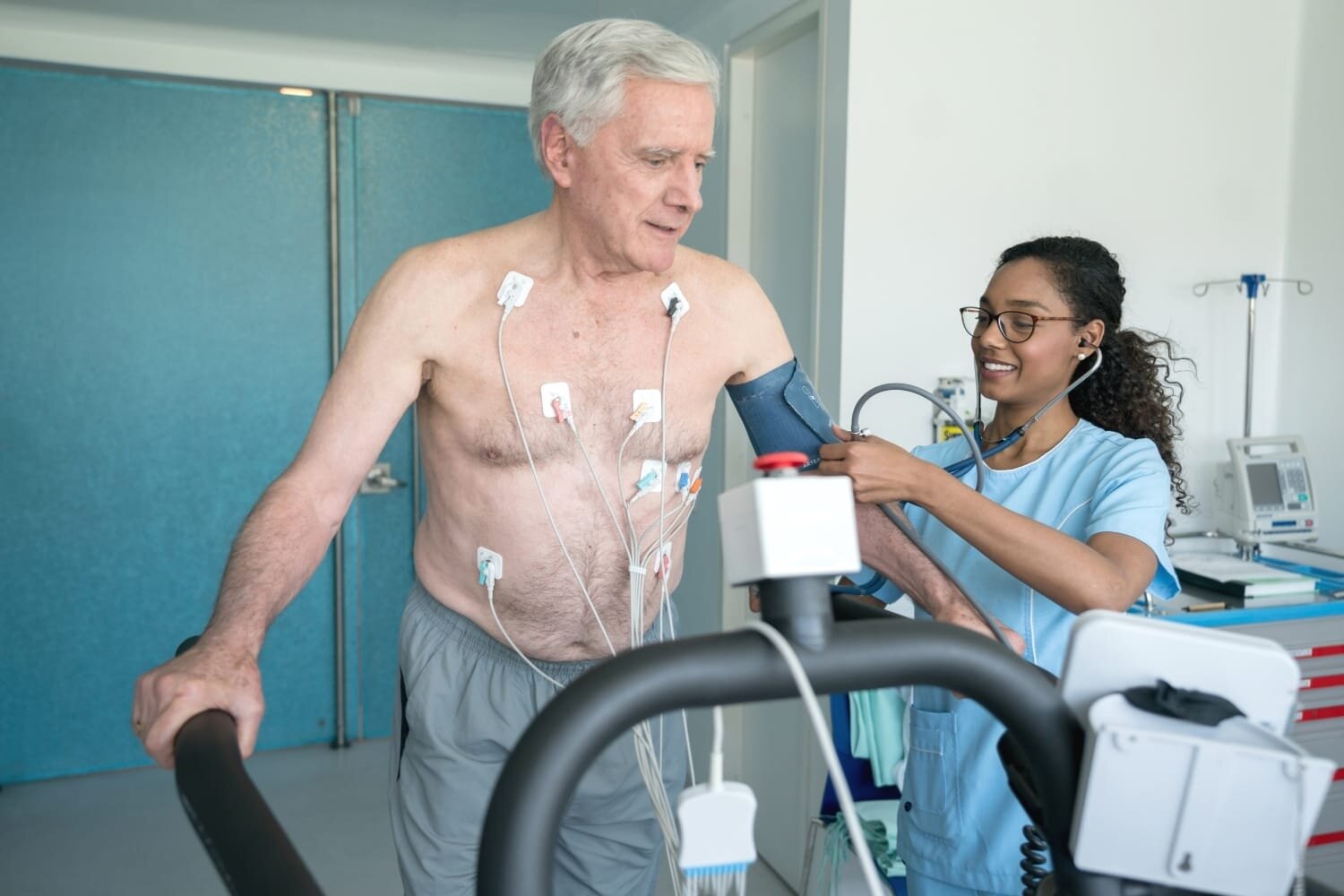What is a treadmill stress test?
A stress test, also called an exercise electrocardiogram (ECG), measures your heart's reaction to exercise stress. An exercise ECG monitors your heart's electrical activity, blood pressure, and heart rate as you walk on a treadmill.
Dr. Arthur Labovitz talks about the different types of stress tests to diagnose heart conditions.
Why is it done?
An exercise stress test is generally used to assist your doctor in determining if your heart receives enough oxygen and sufficient blood flow when it is most needed, such as when you exercise. It can be ordered for persons who have had chest pains or other signs of coronary heart disease (also called coronary artery disease).
An exercise stress test may also be used to measure your level of health, particularly if you are beginning a new fitness program. This helps your doctor to determine how much activity you can safely tolerate.
If you are over 40 years old and a smoker, or if you have other risk factors for heart disease, you should consult our doctors to see if an exercise stress test is appropriate for you.
What can you expect during a stress test?
Small metal electrodes are affixed to your chest. You'll begin by slowly walking on a treadmill. As the exam progresses, the treadmill's speed and incline will be raised. A technician will monitor your heart's activity and rate, as well as your respiration and blood pressure, as you walk.
You exercise until your heart rate reaches a specific level or until you experience signs and symptoms that prevent you from continuing. Among these indications and symptoms are:
Pain in the chest that ranges from mild to severe
Extensive shortness of breath
Blood pressure that is abnormally high or low
An irregular heartbeat
Dizziness
Fatigue
Variations in your electrocardiogram
Your heart rate and respiration will be monitored for a little time after that.
If you are unable to exercise during the stress test, you might need to do a nuclear stress test.
How to prepare for the exercise stress test?
Your doctor will inquire about your medical history as well as how frequently and intensely you exercise. This helps decide the quantity of activity you should do during the exam. Your doctor will also examine your heart and lungs for any health issues that might impact the outcome of your tests. In order to assess the strength of your lungs, your doctor may have you breathe into a tube.
On the day of the test, report any chest aches or other issues you encounter.
After the procedure
Following the exam, you will be given water and instructed to relax. Your attending nurse may continue to monitor your blood pressure if your blood pressure rises throughout the exam.
Your doctor will go through the results with you a few days following the test. The test may detect irregular heart rhythms or other indications of coronary artery disease, such as blocked arteries.
Unless your doctor tells you otherwise, you may resume your usual activities once your exercise stress test is completed.
To request an appointment click below or call (239) 300–0586


